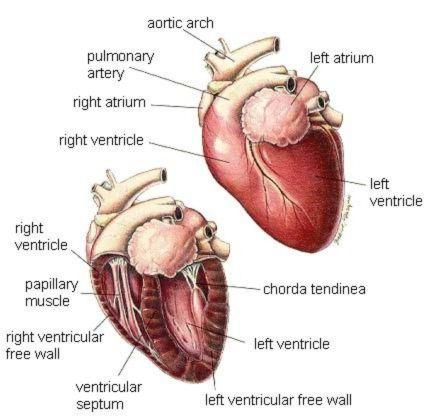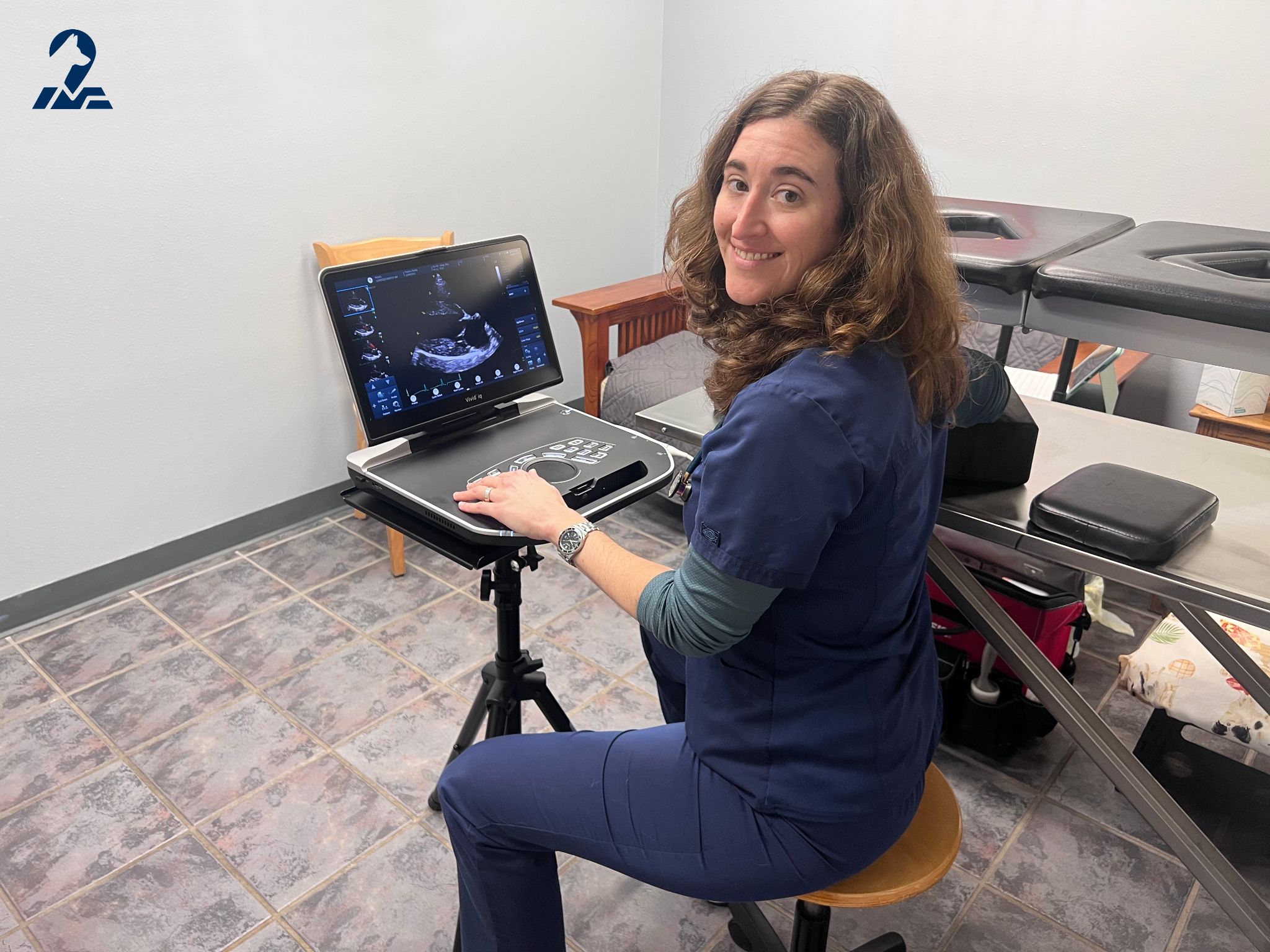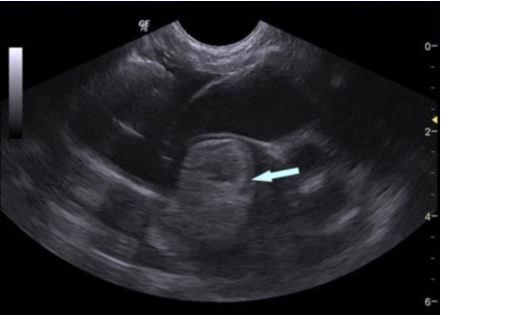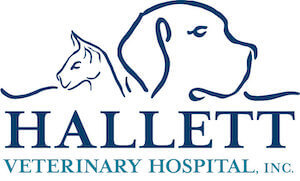
How A Cat's Heart Works
A cat's heart has four chambers. The two upper chambers are called the atrium (plural atria), and the lower chambers are called the ventricles. Additionally, the heart has a right and left side, each containing one atrium and one ventricle. A cat's heart works as follows:
- Veins carry exhausted blood from the body to the right atrium
- Blood is stored in the right atrium momentarily until being pumped into the right ventricle
- The right ventricle pumps the blood into the lungs, where it is infused with fresh oxygen
- The blood then flows from the lungs back into the heart via the left ventricle
- The largest muscle of the heart, which is located in the left ventricle, pumps the freshly oxygenated blood to all other organs and body parts
- Once the blood is circulated and exhausted, veins carry it back toward the heart via the right atrium to begin the process again
Although general veterinary practitioners can diagnose and treat many conditions, treating heart problems in cats sometimes requires specialized training in veterinary cardiology.
What Causes Heart Disease In Cats?
According to the American Veterinary Medical Association (AVMA), heart disease affects 1 of every 10 cats worldwide. Heart disease in cats can lead to congestive heart failure.
Heart disease can be either congenital or acquired:
- Congenital heart disease is present at birth and can be inherited from the parents
- Acquired, or adult-onset heart disease, often occurs in middle-aged to older animals
While cardiomyopathy is the most common form of acquired, adult-onset heart problems in cats, the two most common types of congenital heart disease in cats are malformations of a heart valve or defects in the wall that divides the right and left halves of the heart.
What Is Cardiomyopathy?
 Hypertrophic Cardiomyopathy (HCM), which literally means disease of the heart muscle, is a cardiac condition that causes a thickening and/or stretching of the heart's walls.
Hypertrophic Cardiomyopathy (HCM), which literally means disease of the heart muscle, is a cardiac condition that causes a thickening and/or stretching of the heart's walls.
Hypertrophic Cardiomyopathy is usually diagnosed once a veterinarian rules out secondary causes of thickening, including:
- Hyperthyroidism
- Systemic hypertension
- Aortic stenosis
Although there are many types of potential heart problems in cats, Hypertrophic Cardiomyopathy is by far the most common heart condition affecting the feline population.
Symptoms Of Heart Problems In Cats
There are several possible symptoms of heart problems that cat owners can be on the lookout for, including:
- Lethargy/weakness/inactivity
- Difficulty with or discontinuing exercise
- Shortness of breath or difficulty breathing possibly accompanied by fluid buildup in the lungs and chest
- Sudden paralysis of the hindquarters
- Fast breathing during dormancy
- Increased sleeping respiratory rate
- Open mouth breathing
- Fainting/collapse
- Chronic coughing
- Regularly elevated heart rate
The above-mentioned symptoms can indicate feline heart disease or potentially something unrelated to the cardiovascular system. If you notice any of the above symptoms, we recommend scheduling an appointment with one of our veterinarians immediately.
Diagnosis Of Hypertrophic Cardiomyopathy In Cats
Diagnosing hypertrophic cardiomyopathy in cats begins with a cardiac workup. This allows us to follow a thorough investigative protocol to determine the presence and extent of hypertrophic cardiomyopathy in cats. A cardiac workup can include some or all of the following procedures:
- Physical exam: We listen to your cat's heart and lungs with a stethoscope to check for abnormal sounds
- Ultrasound/echocardiogram: We can view and measure your cat's heart's chamber, valves and muscles, as well as the major cardiac vessels using soundwaves and without any pain
- Blood pressure: We perform a standard, non-invasive blood pressure test to monitor systolic and diastolic pressure
- Electrocardiogram (EKG): We measure the electrical activity of your cat's heart
- X-Rays: We can view the heart's overall size, its positioning in the chest, and the general condition of the lungs
- Blood analysis: We can perform a complete blood count, chemistry panel, urinalysis and thyroid check to help assess the general health of your cat
Echocardiogram
 Dr. Lydia Soydan is a board-certified small animal cardiology specialist with Moves, a Mobile Veterinary Specialists company, based out of the Janesville, WI area and travels to animal hospitals along I-90 from Madison WI and Rockford IL. Hallett Veterinary Hospital has utilized her services for over a year and we feel that she has helped us improve the quality of care that we give and be more successful with treating our patients.
Dr. Lydia Soydan is a board-certified small animal cardiology specialist with Moves, a Mobile Veterinary Specialists company, based out of the Janesville, WI area and travels to animal hospitals along I-90 from Madison WI and Rockford IL. Hallett Veterinary Hospital has utilized her services for over a year and we feel that she has helped us improve the quality of care that we give and be more successful with treating our patients.
Treatment Of HCM
Presently, there is no cure for hypertrophic cardiomyopathy in cats. Changes to the size and structure of the heart muscle are irreversible. The longer HCM is allowed to go untreated, the more severe any changes become. However, in some cases in which heart disease is secondary to a treatable condition such as hyperthyroidism, the symptoms may be alleviated when the underlying condition is corrected.
The good news is that your veterinarian can prescribe several different types of medication that might help reduce the risk of congestive heart failure in cats resulting from HCM. In some cases, medication can help:
- Relax the heart muscle
- Slow the heart rate
- Decrease the workload of the heart
These changes provide the heart with more time to fill and drain, thus allowing for a reduced chance of damage and failure. Because heart medications modify the function of the heart, it is important to strictly follow your veterinarian's recommendations for dosage and administration frequency.
Owners of cats with HCM should monitor their feline friends for any changes in their condition, even if they seem minor at first glance. This includes learning how to monitor respiratory rates and other vital signs at home, which a veterinarian can help with. It is important to come in for an exam if you notice any changes in your cat's health or behavior and keep up all follow-up appointments for the best outcome.
Complications Associated With HCM
Many felines diagnosed with HCM eventually develop signs of congestive heart failure. Cats with HCM are at risk for developing blood clots that can escape the heart and eventually become lodged in a blood vessel. This is called a thromboembolism. A common area for this to occur is the hindquarters region, at the point where the aorta splits before going into each rear leg. If this happens, paralysis and severe pain will result.
Due to the nature of how blood clots fragment and disperse throughout the body, cats that experience blood clotting once are at a significantly increased risk of developing another clot within the following weeks or months. Because of the somber prognosis for cats that have suffered a thromboembolic event, some owners elect euthanasia.
Prognosis For Cats With Cardiomyopathy
The prognosis with HCM is variable depending on severity and presence of congestive heart failure or other complications. Additionally:
- HCM can worsen quickly or progress slowly over a period of years
- HCM can remain undetected in some cats until the advanced stages, and the time between diagnosis and death can be a matter of weeks or months
- HCM can remain mild in some cats and never progress to the advanced stages, while other cats will progress to the advanced stages despite medical intervention
The existence of these variables and possibilities makes follow up care of the utmost importance where heart disease and congestive heart failure are concerned.
Schedule Cardiology Tests For Your Cat Today
If you suspect that your feline friend may be at risk for or is suffering from any heart conditions, contact us immediately.
